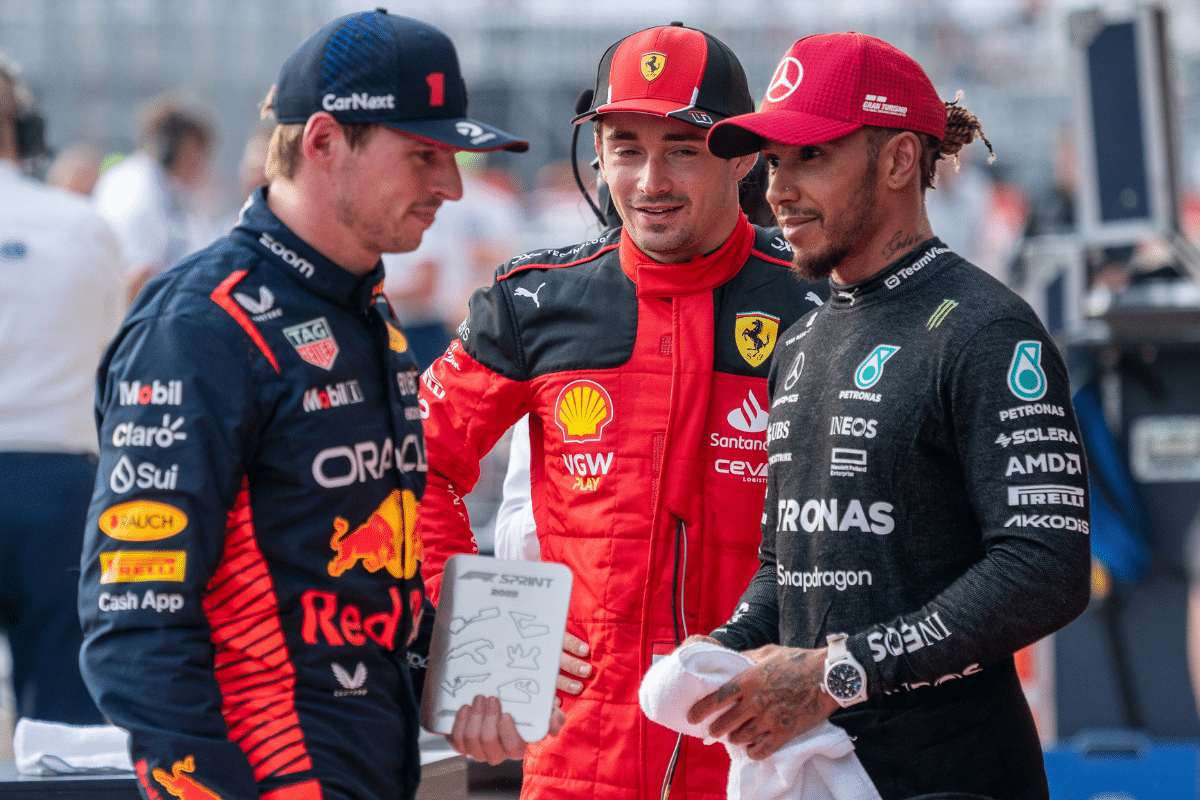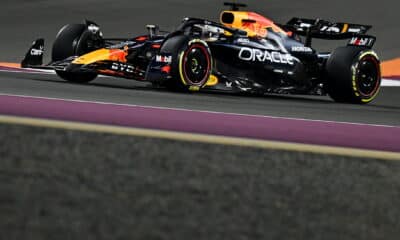
Lewis Hamilton and Charles Leclerc were disqualified from the United States Grand Prix on Sunday for a technical breach.
Post-race checks showed the plank wear levels on Hamilton’s car were beyond the allowed limit and he was subsequently, along with the Ferrari of Leclerc, disqualified, Mercedes said.
The seven-time world champion had finished behind race winner Max Verstappen who collected his 50th GP victory. The Briton whittled the gap down to the 2,2-second Dutch driver on the final lap.
The 38-year-old was understandably disappointed and said: “It is of course disappointing to be disqualified post-race but that doesn’t take away from the progress we’ve made this weekend.”
Leclerc, who started on pole, finished in sixth position ahead of Mercedes driver George Russell.
Hamilton and Leclerc’s punishment meant McLaren’s Lando Norris picked up second place and Leclerc’s teammate Carlos Sainz collected the final podium position.
What Does The FIA’s Technical Regulations Say?
FIA Technical Delegate Jo Bauer headed the post-race check on the planks underneath the Mercedes and Ferrari.
Bauer said: “A physical floor and a plank wear inspection was carried out on car numbers 16 and 44.”
According to Motorsport.com, the FIA Technical Regulations state that the plank assembly measured at designated holes can only wear by 1mm down to 9mm across a weekend.
The Delegate’s Report stated that: “The skids located in the area -825 ≥ XR ≥ – 1025 are found to be not in compliance with Article 3.5.9 e) of the 2023 Formula One Technical Regulations.”
However, it has emerged that only four of the 20 cars on the grid were inspected.
In addition to Hamilton and Leclerc’s cars, Verstappen and Lando Norris had their cars scrutinised. The scrutineers found the latter two cars had no abnormal wear on their rear skid plates.
What Did Hamilton And Leclerc Do Wrong?
Technically, the Stewards noted that “the onus is on the competitor to ensure that the car complies with the regulations at all times during an event. In this particular case, the rear skid in the area defined in the Technical Delegate’s report was outside of the thresholds outlined in Article 3.5.9 e) of the FIA Formula One Technical Regulations, which includes a tolerance for wear.”
The teams were handicapped by the Sprint weekend format that gives the teams only an hour of practice session to work on the best setup for the weekend. As the scrutineering only took place on Sunday, the teams did not know their excessive wear would be deemed illegal.
Another factor is the bumpiness of the Circuit of the Americas track. The track surface meant that because the cars were running lower to the ground, there was a higher chance of more wear.
Race winner Verstappen, brought up the issue of the track surface in the press conference and likened it to a rally circuit.
“Because, at the moment, it feels like it’s better suited to a rally car. I’m jumping and bouncing around. In an F1 car, you probably don’t even see it as much because we are glued to the ground because of the downforce, but the bumps and jumps that we have in some places are way too much. I don’t think it’s F1 level,” he said.
The teams’ attention turns to the next round, the Mexico City GP, next weekend at the Autodromo Hermanos Rodriguez. It is the second race of a triple-header in the Americas with the Sao Paulo GP set to take place a week later.


























